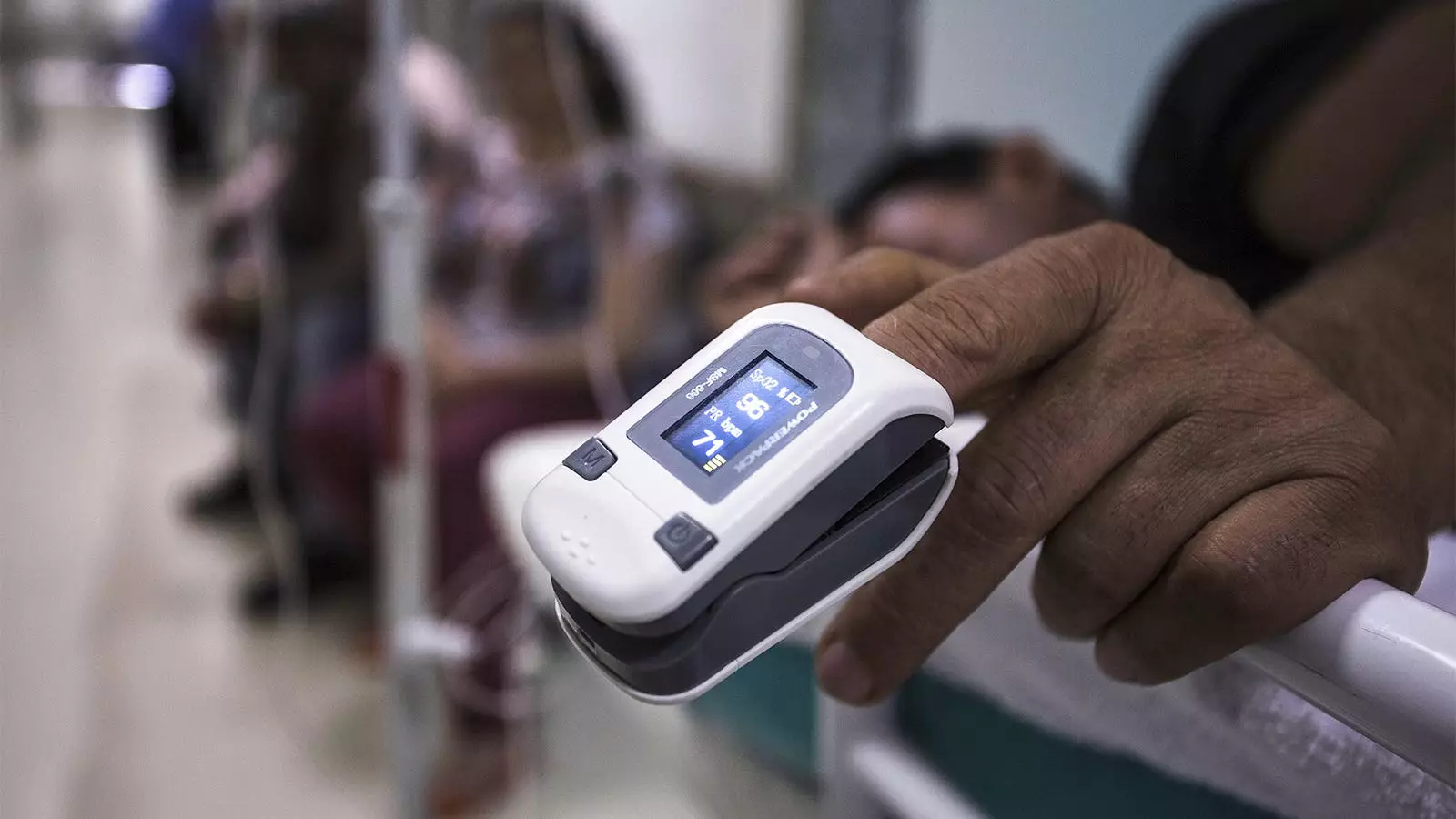The accuracy of pulse oximetry in measuring oxygen saturation has been called into question by a retrospective cohort study. The study revealed that an overestimation of oxygen saturation by pulse oximeters led to delayed delivery of COVID-19 therapy and an unrecognized need for therapy among Black patients. These findings shed light on the potential impact of pulse oximeter inaccuracy on clinical decision-making and patient outcomes.
The study analyzed data from over 24,000 hospitalized COVID-19 patients with concurrent measurements of pulse oximeter saturation (SpO2) and arterial oxygen saturation (SaO2). It was discovered that patients with an initially unrecognized need for COVID-19 therapy, regardless of race, were 10% less likely to receive therapy. Additionally, these patients had higher odds of readmission. The analysis also revealed that Black patients who didn’t have an immediate need for COVID-19 therapy were more likely to have pulse oximetry values that did not indicate a need for therapy compared to white patients.
The findings from this study emphasize the variability in the accuracy of pulse oximeters, which has been previously reported. The inaccuracy of pulse oximeters extends beyond skin pigmentation and affects patients of all races. The delayed administration of COVID-19 therapy based on pulse oximetry error was observed in both Black and white patients, suggesting that racial bias in pulse oximeter accuracy plays a significant role in the treatment differences between these groups. Physicians are encouraged to scrutinize “borderline” values reported by pulse oximeters and not make important medical decisions based solely on these numbers.
A key takeaway from the study is the importance of prioritizing health equity in the development and use of medical technology. Previous trials may not have adequately represented underrepresented minority groups, specifically individuals with darker skin tones. It is crucial for health systems to allocate resources to ensure accurate diagnosis and equitable care for all individuals, especially in cases of concerning conditions like COVID-19. The use of multiple diagnostic tools is recommended to minimize the impact of potential inaccuracies in specific technologies.
Clinicians should be aware of the limitations of pulse oximeters and consider a comprehensive approach to medical decision-making. While pulse oximeters have undoubtedly improved healthcare efficiency, they should be used as one tool among many to support accurate diagnoses and treatment administration. Health systems must take into account the variability in real patient populations and ensure that additional data points are collected for individuals presenting with concerning conditions like COVID-19.
The study acknowledges several limitations. Factors such as hospital staffing, therapy availability, and practice patterns may have influenced the time to treatment administration. The exclusion of patients receiving oxygen therapy and the potential deviation from established guidelines at provider locations could have impacted the study findings. Moreover, self-reported race and ethnicity may not accurately reflect actual skin tone, which can vary. Future research should address these limitations to better understand the impact of pulse oximeter inaccuracy and ensure equitable healthcare delivery.
The overestimation of oxygen saturation by pulse oximeters has resulted in delayed delivery of COVID-19 therapy and an unrecognized need for therapy among Black patients. This study highlights the importance of critically evaluating the accuracy of pulse oximeters and considering the potential for racial bias in clinical decision-making. By adopting a comprehensive approach to medical diagnosis and treatment, healthcare providers can strive for more equitable care and improved patient outcomes.


Leave a Reply